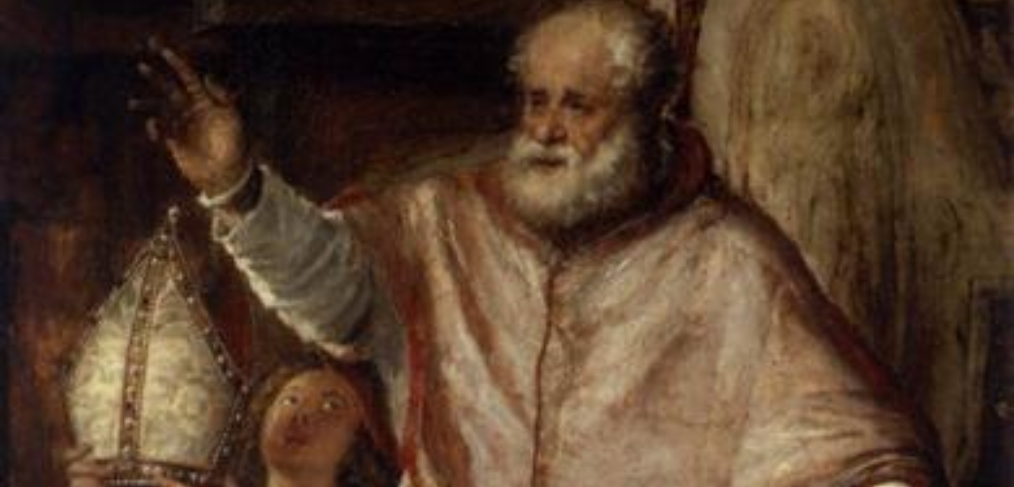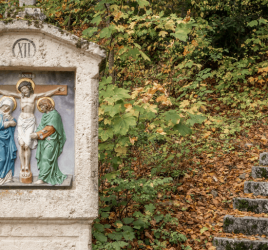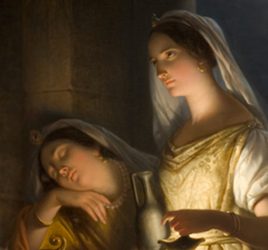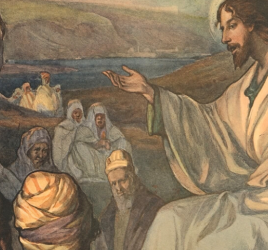
St. Nicholas and St. Josemaria: A Heavenly Intercessor for Earthly Challenges
“St. Nicholas, take care of this house.”
St. Josemaria Escriva
On December 6, 1934, amidst mounting financial challenges in the early days of Opus Dei, St. Josemaria Escriva officially named St. Nicholas of Bari as the intercessor for the organization’s economic needs. This act of faith marked the beginning of a deep and enduring devotion to the saint, whose intercession would guide St. Josemaria through many hardships.
St. Josemaria’s connection to St. Nicholas began during his time as chaplain of the Royal Patronage of Santa Isabel in Madrid, Spain. Living near the parish of El Salvador and San Nicolas, he would often visit the church and invoke the saint’s help for his growing mission. These early appeals laid the groundwork for his later designation of St. Nicholas as the first official intercessor of Opus Dei.[1]
In 1933, St. Josemaria founded the DYA Academy in Madrid, an educational center offering courses in law and architecture. Despite its promise, the Academy faced severe financial strains, with student contributions barely covering expenses. Driven by his vision for the expansion of the Academy to include a student residence that would also offer spiritual formation, St. Josemaria undertook the challenge of expanding to a larger property. By August 1934, he secured a building at 50 Ferraz Street, but the deposit of 25,000 pesetas was daunting. His family generously stepped in to bridge the financial gap, and the move was completed. However, the October Revolution in Spain of 1934 caused social unrest, delaying the arrival of students and leaving the residence nearly empty.[2]
Patron of Financial Affairs
Faced with these mounting economic pressures, St. Josemaria turned to St. Nicholas. On December 6, 1934, he recorded in his notes: “On the feast of Saint Nicholas of Bari, I promised the Holy Bishop, as I was going up to the altar to say Mass, that if he resolved our financial problems in our House of the Guardian Angel, I would name him administrator of the Work of God.” Thinking he had not been generous enough, St. Josemaria later added to his notes, “Even if you don’t listen to me now, you will still be the Patron of our financial affairs.”
This devotion to St. Nicholas became a tradition within Opus Dei, with every Center displaying his image alongside the inscription, Sancte Nicolae: curam domus age (“St. Nicholas, take care of this house”).[3]
Expressions of Humor and Faith
St. Josemaria’s devotion to St. Nicholas was accompanied by his characteristic humor. On January 3, 1935, he jokingly filled out an enrollment form for St. Nicholas as the first resident of the DYA Residence, listing his address as “La Gloria” (Heaven), his telephone number as “Prayer,” and his profession as “Bishop.”
In a letter to his friend Fr. Eliodoro Gil, dated January 19, 1935, St. Josemaria quipped, “Did you know that Saint Nicholas of Bari is no less than the General Administrator of the Work of God? What a job he’s stuck with!”[4]
Pilgrimage to Bari
Years later, in 1954, the growing financial demands of Villa Tevere, Opus Dei’s headquarters in Rome, prompted St. Josemaria to make a pilgrimage to Bari, accompanied by Bl. Alvaro del Portillo. Visiting St. Nicholas’ tomb, he fervently prayed for the saint’s intercession to cover the mounting expenses. Shortly after the pilgrimage, financial relief came through a construction contract that alleviated immediate pressures. In the same year, St. Josemaria dedicated a small oratory to St. Nicholas in Villa Tevere, adorned with a mosaic depicting the saint holding a book in his left hand, its cover featuring a model of the building.[5]
Human and Supernatural Means
St. Nicholas remained a vital figure in St. Josemaria’s life and in the history of Opus Dei. His feast day, December 6, is celebrated annually in Opus Dei centers worldwide. The saint’s intercession continues to symbolize faith, perseverance, and reliance on divine providence. As St. Josemaria once said, “I don’t pray for easy miracles. First, I pray that we work, that we support ourselves by our jobs. Then, when we fall short, we ask God for help. We need to employ the human means, hand in hand with the supernatural. They always go together.”
This legacy of faith and trust remains central to the spiritual life of Opus Dei, a testament to St. Josemaria’s unwavering belief in St. Nicholas’ intercession.
[1] José Miguel Pero-Sanz, San Nicolás de Bari, intercessor in the economic needs of Opus Dei, pp. 25-26.
[2] Ibid., 28-29
[3] Ibid., 24
[4] Ibid., 30
[5] Ibid., 32-33




